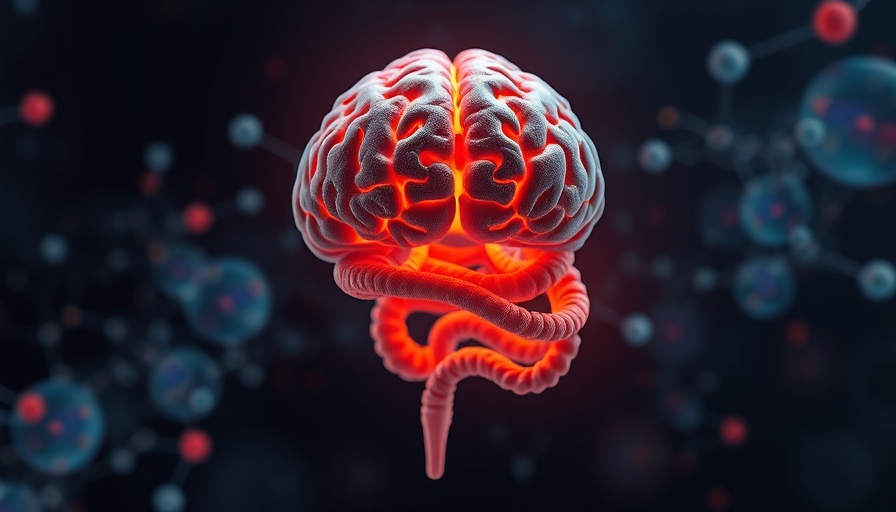
The Gut-Brain Connection: Unveiling the Hidden Power of Nutrition
In recent years, the growing body of research linking gut health to mental well-being has gained prominence, shedding light on how our digestive system significantly influences our mood and mental health. As experts like Professor Gordon Parker discuss, the concept of the gut-brain axis elucidates the profound impact that gut microbiota has on mental health issues such as anxiety, depression, and stress management.
A Path Less Traveled: Understanding the Psychobiome
The term psychobiome represents the relationship between the gut microbiome and the brain. Emerging science suggests that our gut bacteria can produce neurotransmitters that regulate emotions. For instance, serotonin, a neurotransmitter crucial for feelings of well-being, predominantly resides in the gut, not the brain. Inadequate gut health can lead to disruptions in serotonin levels, contributing to symptoms of anxiety disorders and panic attacks. This connection beckons further exploration, especially among vulnerable populations such as youth, women, and those coping with economic stress or chronic illness.
Practical Insights: Dietary Choices for Mental Health
Making adjustments to one's diet can play a pivotal role in enhancing gut health and, subsequently, mental health. Diets rich in probiotics—found in foods such as yogurt and fermented products—and prebiotics—present in foods like garlic and bananas—can support a balanced gut environment. Studies indicate that individuals who incorporate these foods into their daily meals tend to experience fewer anxiety symptoms and improved mood stability. As educators and healthcare professionals emphasize the importance of mental health awareness, integrating nutrition into mental health strategies is gaining traction.
Mindfulness and Relaxation Techniques: Bridging Calmness and Gastric Health
Incorporating mindfulness practices and relaxation techniques, such as yoga and meditation, can further enhance the benefits derived from a healthy gut. Mindfulness can mitigate the harmful effects of stress, a known exacerbator of anxiety and depression. Engaging in activities that encourage emotional intelligence and resilience-building fosters both mental and physical well-being. Programs focusing on these strategies, particularly in academic settings, are vital as student mental health becomes an increasing concern, especially in our post-COVID-19 landscape.
Addressing Mental Health Stigmas: A Community Responsibility
While the conversation surrounding gut health and mental illness evolves, it remains crucial to address the cultural stigmas and misconceptions that often accompany discussions about mental health. Socioeconomic factors, such as access to healthcare and mental health policy changes, play a significant role in preventing individuals from seeking help. Community outreach and support groups have emerged as essential resources in reducing stigma, fostering a culture of openness regarding mental health issues. The importance of early intervention cannot be overstated, highlighting the need for preventive strategies and comprehensive mental health education.
Conclusion: A Call for Action Towards Comprehensive Mental Health Practices
As we increasingly recognize the gut's influence on mental well-being, a holistic approach encompassing nutrition, mindfulness, and community support emerges as a frontrunner in mental health practices. Caregivers, educators, and healthcare providers are encouraged to consider integrative techniques in their outreach and support efforts. Addressing both physical and mental health concurrently offers a promising pathway to resilience for the most vulnerable populations, particularly in times of crisis. Join the movement towards comprehensive mental health practices and advocate for a more integrated approach in your community!
 Add Row
Add Row  Add
Add 




Write A Comment